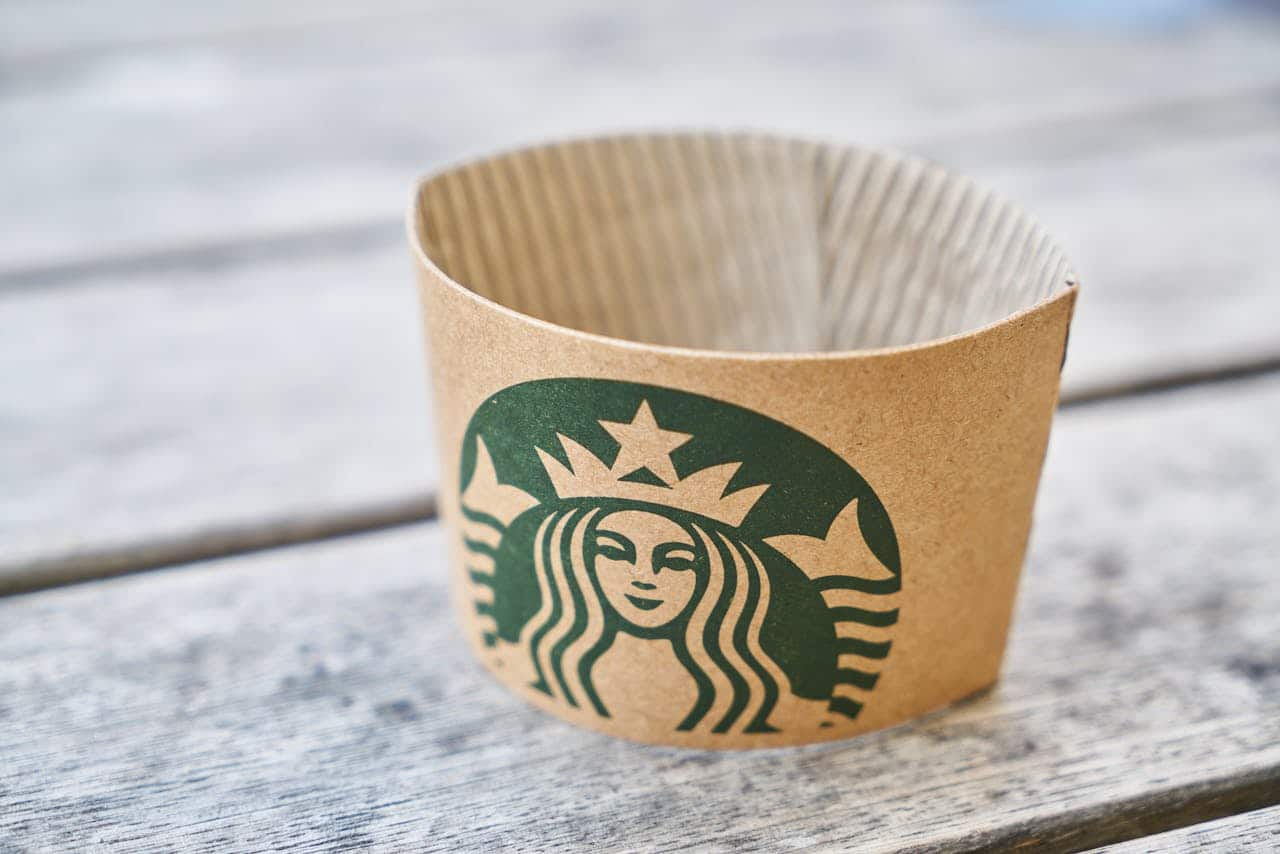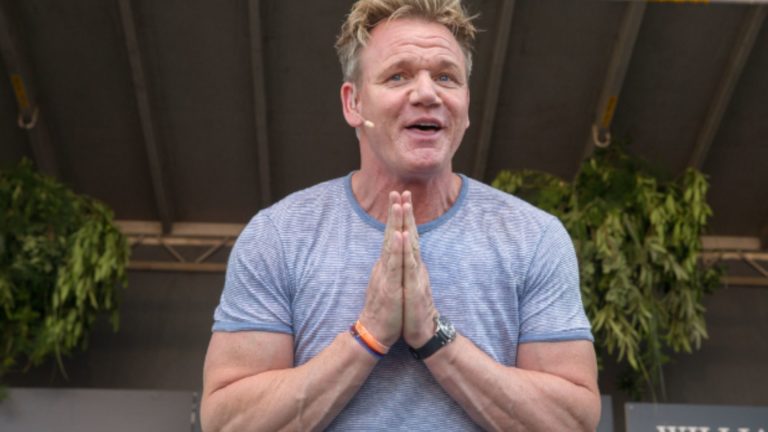In our daily lives, our choices shape the world around us, often more than we realize. Our purchasing habits, whether informed or not, contribute to the broader environment we share. For many, Starbucks is a go-to for coffee, but recent revelations suggest it might be time to reconsider this choice. The seemingly benign act of buying a cup of coffee can have significant ramifications, particularly when it comes to Starbucks’ stance on genetically modified organisms (GMOs).
Over the past few years, Starbucks has been embroiled in controversy due to its involvement with Monsanto and the Grocery Manufacturers Association (GMA). These organizations have aggressively opposed GMO labeling laws, misleading consumers about the true nature of the products they are consuming. If you’re a regular at Starbucks, understanding the implications of their actions is crucial. Let’s delve deeper into why your next coffee purchase might need a rethink.
Starbucks and GMO
One of the more contentious aspects of the GMO debate surrounding Starbucks involves its alleged connections with Monsanto, a major player in agricultural biotechnology. Critics, including advocacy groups like GMO Inside, have accused Starbucks of indirectly supporting Monsanto’s practices by sourcing milk produced from cows fed genetically modified feed. This relationship has become a focal point for protests and campaigns demanding that Starbucks shift towards using non-GMO products in their offerings.
The controversy deepens with discussions about Starbucks’ stance on GMO labeling. The coffee giant has been criticized for not supporting legislation that would require clear labeling of GMO products, a stance seen by some as aligning with Monsanto’s interests, which have historically opposed such labeling laws. This perceived alliance has sparked a backlash among consumers who are increasingly demanding transparency and ethical considerations in food production.
Starbucks’ involvement in political lobbying and its implications for GMO labeling initiatives have also been scrutinized. The company’s political actions are viewed by some advocacy groups as contradictory to its public commitment to sustainability and ethical practices. This tension highlights a significant challenge for Starbucks: balancing corporate interests with consumer expectations for health and environmental stewardship.
Starbucks and Ethical Sourcing Claims
Starbucks, a company that has long marketed itself on the principles of responsibility and sustainability, has also faced significant scrutiny and legal challenges regarding its claims of “100% ethically sourced” coffee and tea. A lawsuit filed by the National Consumers League (NCL) alleges that these claims are misleading. The NCL argues that despite Starbucks’ assurances, some of its products come from suppliers engaged in severe human and labor rights abuses.
A specific case highlighted in these allegations involves the James Finlay & Co. tea plantation in Kenya. Reports from this location paint a grim picture of the working conditions, including grueling labor demands placed on workers and disturbing instances of sexual misconduct. Such conditions starkly contrast with the ethical sourcing standards Starbucks claims to uphold.
These allegations suggest a discrepancy between Starbucks’ marketed image as a socially responsible company and the realities within its supply chain. This situation not only raises concerns about the authenticity of Starbucks’ ethical claims but also calls into question the enforcement and transparency of its sourcing practices.

Starbucks and False Sustainability
Starbucks has faced allegations that its sustainability claims, particularly regarding coffee and tea sourcing, are not backed by meaningful reforms. Critics argue that the company’s efforts to present itself as a leader in sustainability are more about marketing than actual environmental responsibility. These allegations point to a gap between Starbucks’ public commitments to sustainable sourcing and the reality of its operational practices.
Despite its claims of responsible sourcing, Starbucks has been criticized for not implementing significant changes in its supply chain to truly minimize its environmental impact. The company promises to provide ethically sourced coffee and tea, but reports and lawsuits suggest that Starbucks has not adequately addressed the environmental and human rights issues in its supply chains. This includes failing to improve conditions in supplier operations or to sufficiently monitor and enforce sustainability standards among its suppliers.
On the environmental front, Starbucks has been scrutinized for its carbon footprint, with critics pointing out that the company’s efforts fall short of its environmental responsibility goals. While Starbucks has initiatives aimed at reducing waste and promoting recyclable packaging, the overall impact of these initiatives is often questioned. The criticism focuses on the effectiveness of Starbucks’ recycling programs and whether the company is making substantial progress toward its pledge to reduce greenhouse gas emissions, water usage, and waste.
The sustainability of Starbucks’ sourcing practices has also been a significant point of contention. The company claims to invest in sustainable practices for growing coffee and tea, yet environmental advocates argue that Starbucks’ actual practices are insufficient to combat the significant ecological damage associated with large-scale agricultural operations, including deforestation, water overuse, and chemical pollution.
Other Health Concerns Associated with Starbucks
Starbucks, known globally for its extensive menu of beverages and snacks, faces scrutiny not just for its environmental and ethical practices but also for the health implications of its products. Several concerns have been raised about the nutritional content of Starbucks’ offerings, particularly the high sugar levels, excessive caffeine, and the presence of potentially harmful ingredients.
High Sugar Content: Many of Starbucks’ most popular drinks, including flavored lattes and Frappuccinos, contain high levels of sugar. For example, a grande Caramel Frappuccino packs nearly as much sugar as some soft drinks. The high sugar content in these beverages can contribute to various health issues, including diabetes, obesity, and cardiovascular disease, especially when consumed frequently.
Caffeine Levels: Starbucks is also often criticized for the high caffeine content in its coffee drinks. While caffeine is a standard component of coffee, excessive intake can lead to health issues such as insomnia, nervousness, restlessness, stomach irritation, nausea, and increased heart rate. Particularly for individuals sensitive to caffeine, the strong brews offered by Starbucks can pose a health risk.
Potential Presence of Carcinogens: There has also been concern over carcinogenic chemicals in coffee. In California, Starbucks was among the companies involved in a lawsuit related to Proposition 65, where they were required to warn customers about the presence of acrylamide, a chemical produced during the roasting process that has been linked to cancer. Although the health impact of acrylamide at the levels found in coffee is still debated, this adds another layer of concern for health-conscious consumers.
Nutritional Transparency: In response to health concerns and consumer demand for healthier options, Starbucks has made efforts to offer more nutritional information and healthier alternatives, such as adding more low-sugar and dairy-free options to its menu. However, the core menu items still raise concerns due to their calorie, sugar, and caffeine content.

The Impact of Consumer Choices on Starbucks
Consumer choices have the power to drive significant change in corporate practices, and Starbucks is no exception. The collective decisions of informed consumers can influence the company’s policies and push it towards more ethical and sustainable practices. Understanding the broader implications of our purchasing habits is crucial for creating a positive impact on the world.
When consumers choose to support businesses that prioritize transparency, sustainability, and ethical sourcing, they send a strong message to companies like Starbucks. The growing awareness and activism around GMOs and ethical sourcing highlight the power of consumer demand. As more people advocate for GMO-free products and transparent labeling, businesses are compelled to respond to maintain their customer base and reputation.
Boycotting or reducing purchases from companies that do not align with ethical values is one way to exert influence. Instead, supporting local coffee shops or brands committed to organic, GMO-free ingredients can help shift the market. These actions not only promote better health and sustainability but also encourage larger corporations to adopt similar practices.
Additionally, public campaigns and petitions play a crucial role in raising awareness and pressuring companies to change. The collective efforts of consumers have already led to significant victories, such as the reduction of antibiotic use in livestock and the push for GMO labeling laws. By continuing to advocate for transparency and ethical sourcing, consumers can drive further change.

My Personal RX on Making Smarter Consumer Choices
I often emphasize the importance of making informed choices, not just in terms of diet but also in the broader context of our environment and daily habits. Our decisions, including where we buy our coffee, can have significant implications for our overall health. By being more mindful of the products we consume and the practices of the companies we support, we can make a positive impact on both our health and the environment. Here are my top tips for aligning your choices with better health outcomes:
- Choose Organic and Non-GMO Products: Whenever possible, opt for organic and non-GMO foods. These choices can reduce your exposure to potentially harmful chemicals and promote better health.
- Support Ethical Brands: Spend your dollars on brands that prioritize ethical sourcing and transparency. Look for companies that are committed to sustainable practices and high-quality ingredients.
- Incorporate Super Greens: Adding Super Greens powdered supplement to your daily routine can provide the benefits of full-spectrum superfoods, supporting your overall health and well-being.
- Limit Processed Foods: Reduce your intake of processed foods, which often contain GMOs and unhealthy additives. Focus on whole, natural foods to nourish your body.
- Stay Informed: Keep up with the latest research and news about GMOs and food labeling. Being informed helps you make better decisions for your health.
- Advocate for Transparency: Join campaigns and advocacy groups that push for GMO labeling and ethical sourcing. Your voice can help drive change in corporate practices.
- Practice Mindful Eating: Pay attention to what you eat and how it affects your body. Mindful eating can improve your relationship with food and contribute to better health.
- Educate Yourself: Understanding the science behind food and health is crucial. Get yourself a copy of my newest insightful book Heal Your Gut, Save Your Brain to learn about the gut-brain axis and how improving gut health can positively impact mental health.
By integrating these tips into your lifestyle, you can take proactive steps towards better health and support a more sustainable and ethical food system.
Sources:
- foodnavigator-usa.com. (2014, March 5). GMO Inside calls on Starbucks to source organic milk from cows not fed GM feed. https://www.foodnavigator-usa.com/Article/2014/03/05/GMO-Inside-targets-Starbucks-after-claiming-Cheerios-victory
- Regan, H. (2014, November 17). Starbucks says it has nothing to do with a High-Profile GMO lawsuit. TIME. https://time.com/3588237/neil-young-starbucks-gmo/
- Euronews. (2024, January 11). Starbucks sued by consumer group over alleged false ethical sourcing claims. Euronews. https://www.euronews.com/business/2024/01/11/starbucks-sued-by-consumer-group-over-alleged-false-ethical-sourcing-claims
- Knappenberger, R. (2024, January 12). Amid labor concerns, Starbucks customers weigh loyalty to coffee giant. Courthouse News Service.https://www.courthousenews.com/amid-labor-concerns-starbucks-customers-weigh-loyalty-to-coffee-giant/
- Welch, A. (2016, February 19). Do you know how much sugar is in your Starbucks drink? CBS News. https://www.cbsnews.com/news/do-you-know-how-much-sugar-is-in-your-starbucks-drink/
- Rosenberg, E. (2021, October 26). Coffee must carry cancer warning, California judge rules. Washington Post. https://www.washingtonpost.com/news/to-your-health/wp/2018/03/29/coffee-must-carry-cancer-warning-california-judge-rules/












 Subscribe to Ask Dr. Nandi YouTube Channel
Subscribe to Ask Dr. Nandi YouTube Channel









